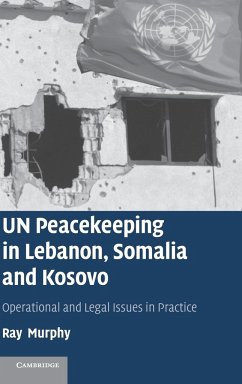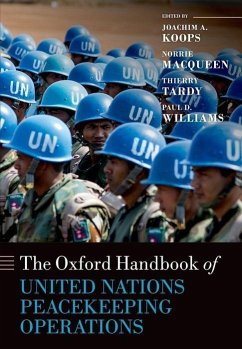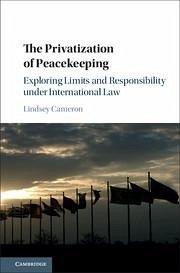
Gender, Conflict, and Peacekeeping
Versandkostenfrei!
Versandfertig in 1-2 Wochen
146,99 €
inkl. MwSt.
Weitere Ausgaben:

PAYBACK Punkte
73 °P sammeln!
Peacekeeping has become a major international undertaking throughout the world, from Africa to the Americas, from Europe to Southeast Asia. Yet until now, there has been no systematic analysis of the key role of gender in post-cold war conflicts and of post-conflict peacekeeping efforts. This groundbreaking volume explores how gender has become a central factor in shaping current thinking about the causes and consequences of armed conflict, complex emergencies, and reconstruction. Drawing on expertise ranging from the highest levels of international policymaking down to the daily struggle to i...
Peacekeeping has become a major international undertaking throughout the world, from Africa to the Americas, from Europe to Southeast Asia. Yet until now, there has been no systematic analysis of the key role of gender in post-cold war conflicts and of post-conflict peacekeeping efforts. This groundbreaking volume explores how gender has become a central factor in shaping current thinking about the causes and consequences of armed conflict, complex emergencies, and reconstruction. Drawing on expertise ranging from the highest levels of international policymaking down to the daily struggle to implement peacekeeping operations, this work represents the full span of knowledge and experience about international intervention in local crises. Presenting a rich array of examples from Angola, Bosnia Herzegovina, East Timor, El Salvador, the former Yugoslavia, Guatemala, Haiti, Kosovo, Liberia, Mozambique, Namibia, Rwanda, and Serbia, the authors offer important insights for future peacekeeping and humanitarian missions.














